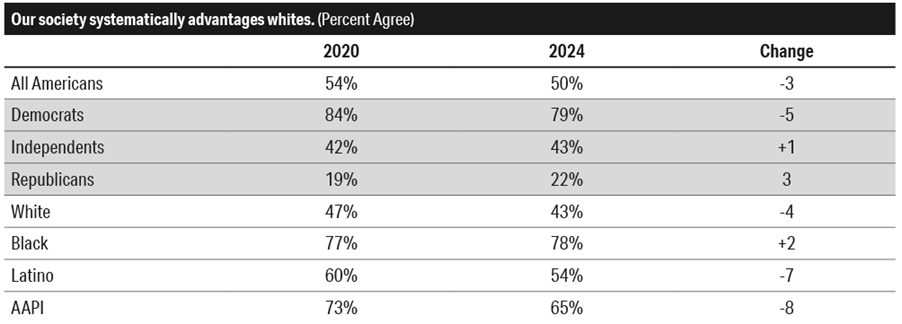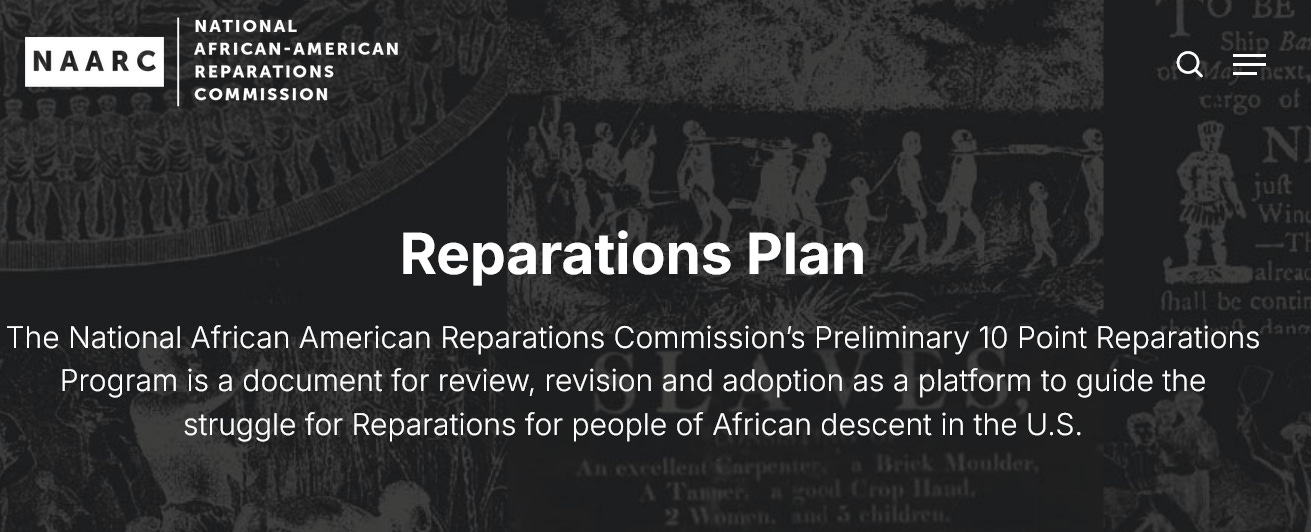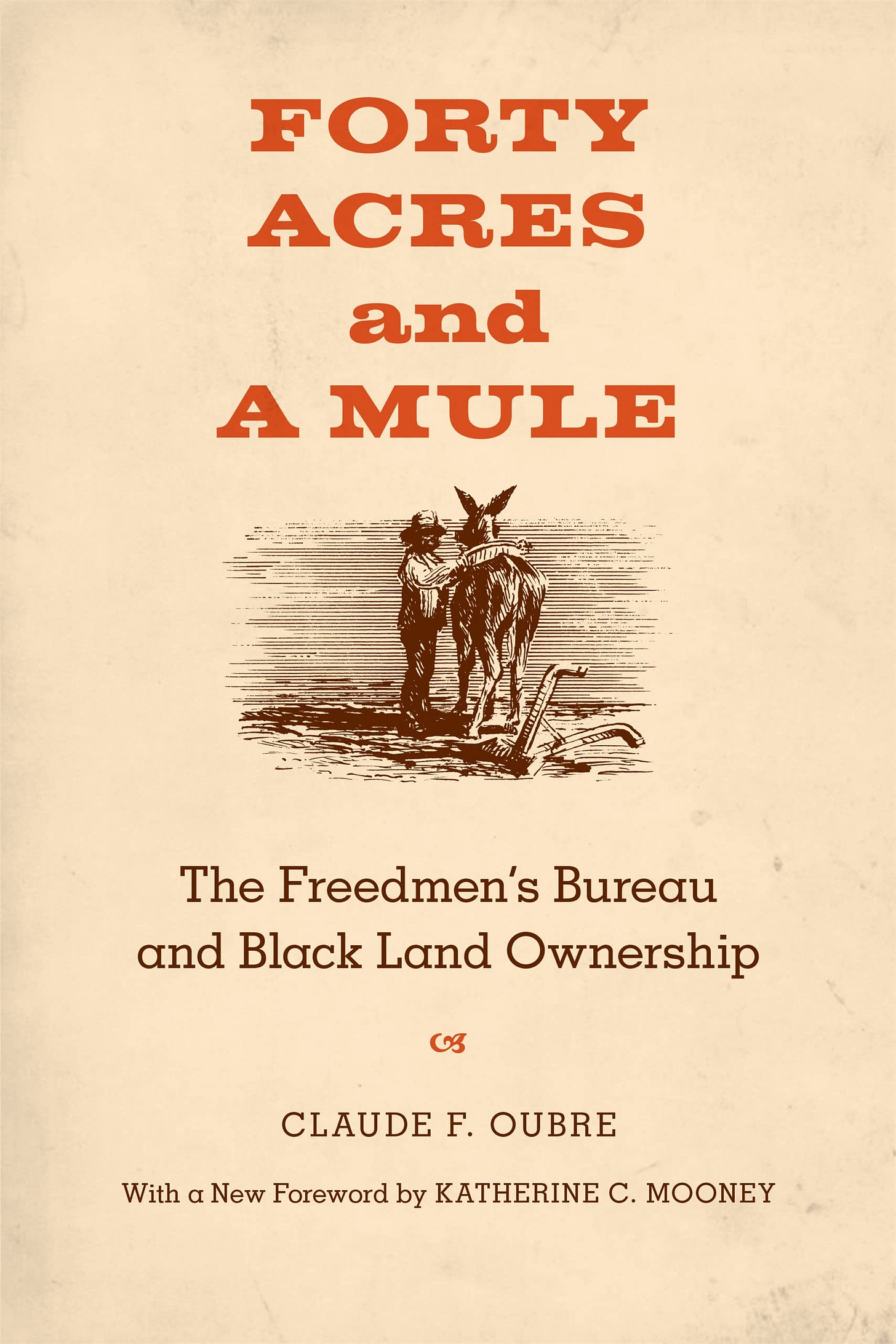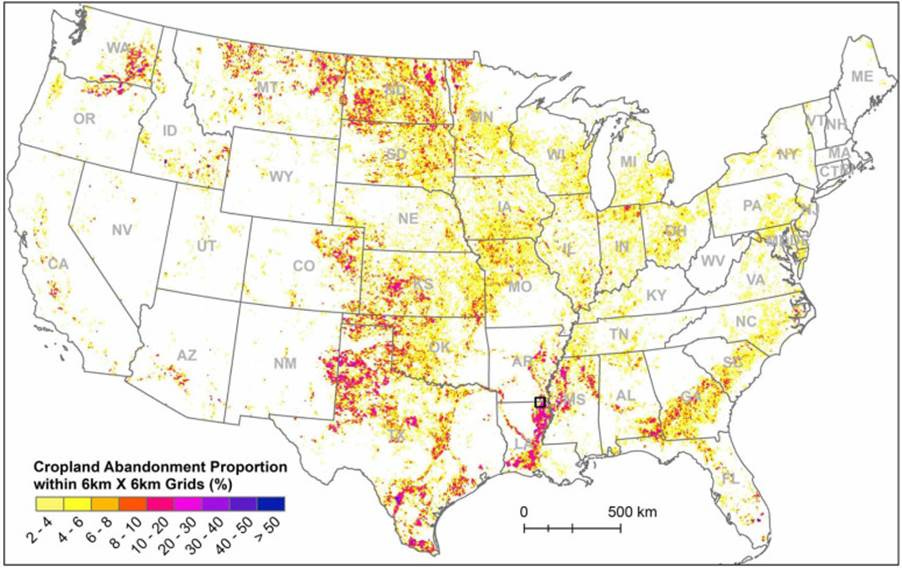Strange but Complementary Bedfellows
Like myself, most Americans believe that the country did African Americans a moral wrong in the practices of slavery and later through Jim Crow laws. Also like most Americans, I have long dismissed demands for reparations. Most of the time these demands feel artificial—as if put in the minds of Black Americans by our modern victimization-obsessed progressive elite.

Reparations seem to be, and to a great extent actually are, little more than a wealth transfer from White Americans to Black Americans at the insistence of the already wealthy political elite.
Also like most Americans, I feel our country has more than made up for this past. Yet, this opinion is drowned out against a consistent and steadily growing block of Black Americans who advocate for reparations. Ignoring this issue will not make it go away.
Reparations-based politics is gaining steam across liberal (and even moderate) America. The City of Ithaca, New York is beginning an “effort to assess a reparations program for local Black residents.” Ithaca is joining a national movement along with Evanston, IL and San Francisco, CA attempting to meet Black American demands for reparations at the local level. This is despite the fact New York began the process of abolishing slavery in 1799 and California was never a slave state.
Moreover, reparations are far from a local issue. On January 3rd, 2025 draft bill H.R. 40 made it out of the House Judiciary Committee for the first time since its original introduction in 1989. H.R. 40 seeks to establish a Commission to Study and Develop Proposals for African Americans. The bill has again stalled in the House, though it will surely be resurrected.
In the meantime, California, Illinois, Maryland, New York, and most surprisingly Iowa will continue pursuing their state-level reparations-based priorities. Of these five states, only Maryland was a slave state and native sons of all five died in the Civil War that ended slavery in this country.
Regardless of history, Black Americans are certainly not going to drop the reparations issue—86% of African Americans support reparations while less than 28% of Whites back the concept. In another 2022 poll conducted by the Pew Research Center 77% of African Americans back reparations payments while only 18% of Whites do. Meanwhile the share of White Americans who view diversity as a threat has more than tripled from 11% to 35% in just five years, with 45% of non-college educated Whites now viewing diversity as a threat to the country. To put this in population terms, 56 million adult White Americans view diversity as a threat to the country. Whites and Hispanics also disagree with African Americans about immigration and mass deportations. While 67% of Whites and 53% of Hispanics in the US are in favor of mass deportations a 53% share of African Americans oppose the Trump priority.
A Democracy Fund poll shows that between 2020 and 2024, the share of African Americans who feel that American society systematically advantages Whites has increased from 77% to 78%. White Americans feel the exact opposite, with a four-point collapse in the number of Whites who believe they are systematically advantaged in American society (47% to 43%). 81% of African Americans believe White Americans enjoy social and economic privileges on account of race, while just 43% of Whites perceive such advantage, a collapse of five points between 2020 and 2024. The divergence is striking.

I could go on citing poll after poll, but the crux of my point is that this issue is not going away. White Americans are unprepared for the torrent of financial and social strife that reparations policies might one day deliver to our doorsteps. I firmly believe that, contrary to the claims of Black activists, a haphazard and decidedly one-sided reparations settlement based entirely on their terms will inflame racial strife in the United States so severely it may devolve into domestic political instability and even street-level chaos.
On the other side of the issue are the social, political, and economic priorities of African Americans. Even if I and a large share of other Americans disagree with their positions, this does not necessarily invalidate their concerns. African American political priorities are very real regardless of how different they are from White, Hispanic, or broader American political priorities.
For all the reasons mentioned above I decided to dive into the reparations proposals of two organizations. I focused on the proposals from the National Association for the Advancement of Colored People (NAACP) and the National African-American Reparations Commission (NAARC).

What I found was an interesting intersection with nationalist ideas. A common theme between these proposals and nationalism were demands for land, autonomy, self-determination, and independent identity-based governance institutions for the benefit of African Americans. These are all reasonable requests for any people with a distinct identity, culture, and shared background. What is not reasonable are many of the other adjoining demands such as an insistence on apologies and acknowledgment of White ‘collective guilt,’ demands to have access to Social Security and Medicaid decades ahead of other Americans, and yet more changes to the criminal justice system which would result in even softer on crime policies across the country. Many reparations policies are structured to universally benefit African Americans and universally disadvantage others—all justified under the umbrella of “slavery and Jim Crow” as well as supposed ongoing racism.
All of these demands cannot and certainly should not be met, but those demands where American nationalism and Black self-determination intersect deserve further exploration.
Nationalist and African American reparations-based demands have a significant amount of overlap, and a settlement could be brought forth that works for both White and Black Americans. A settlement where African Americans can pursue their autonomy and White Americans will no longer need to live under constant assault by racially dogmatic groups and institutions that paint us as intrinsically evil and seek to legally disadvantage us in the country our ancestors founded.
Repatriation:
The second demand of the National African-American Reparation Commission’s (NAARC) 10-point plan is for a right of repatriation. To quote from the NAARC’s website:
“The descendants of the millions of Africans who were stolen from Africa and transported to the strange lands of the “Americas” against their will to enrich their captors have a right to return to the motherland to an African nation of their choice. Africans in America who choose to exercise the right to return will be provided with sufficient monetary resources to become productive citizens in their new home and shall be aided in their resettlement by a Black-controlled agency funded by the federal government to perform this function.”
This demand for a right of repatriation aligns perfectly with the numerous White Papers proposals to provide monetary, logistical, and bureaucratic support to African Americans who wish to ‘return’ to Africa. We have also proposed working in concert with countries like Ghana and Senegal, who actively court the diaspora, to make this process as mutually beneficial as possible.
In the recently published American Repatriation Policy Platform (ARPP), my colleague Mike Adams mentions our oft cited Monmouth University poll that shows 45% of people of color in the United States would depart the country if they had the resources to do so. While a February 2025 poll by Harris shows that 57% of African Americans have considered leaving the country.
In pursuit of this mutual goal the White Papers’ ARPP suggests that a repatriation payment of $72,000 dollars be made to any individual who decides to settle abroad. The repatriation program would also include debt forgiveness, paid travel expenses, and assistance in acquiring the necessary travel and legal documents.
Were the NAARC and American nationalists to bring this policy from demand/desire into reality then some 17 to 21 million (of the 37 million Foundational Black Americans) could be expected to relocate abroad to the Caribbean and African nations the NAARC specifically mentions as desirable destinations.
Land and Autonomy:
Both the NAARC and NAACP reparations programs make demands for land. Each begins by making a reference to the promises for “40 acres and a mule” made by Union General William T. Sherman and enshrined in his Special Field Order No. 15. This order came about after General Sherman held a meeting with twenty Black leaders, including ministers and secular officials, as well as Edwin Stanton, the Union’s Secretary of War.

To quote section one of that order:
“The islands from Charleston. South Carolina, the abandoned rice fields along the rivers for thirty miles back from the sea, and the country bordering the St. Johns River, Florida, are reserved and set apart for the settlement of the Negroes [sic] now made freely the acts of war and the proclamation of the President of the United States.” Section two specifies that these new communities, moreover, would be governed entirely by black people themselves”
Section three goes on to describe the way in which the land shall be dispersed:
“each family shall have a plot of not more than (40) acres of tillable ground, and when it borders on some water channel, with not more than 800 feet water front, in the possession of which land the military authorities will afford them protection, until such time as they can protect themselves, or until Congress shall regulate their title.”

This never came about, of course. President Andrew Johnson effectively nullified the plan during his first year in office and the White landowners in the area retained the rights to their properties. Still, this does not preclude the establishment of a modern concentration of Black property and land with the aspects of self-rule promised in Order No.15.
The NAARC demand is thus:
“Substantial tracts of government/public land in the South and other regions of the country be transferred to the National Reparations Trust Authority with full autonomy in terms equivalent to the sovereignty granted to Native people over reservations awarded to them. These lands are to be utilized for major educational, commercial, industrial, economic/business and health/wellness institutions and enterprises to benefit people of African descent.”
While the NAACP demands that:
“Each family of 3 or more individuals (parents & children) shall be granted 40 acres of tillable land. No taxes to be paid on the property for 5 years from the date the land is first bequeathed by the government.”
These demands are not unreasonable, and a possible settlement option does indeed exist, though not in the original territories outlined by Sherman’s order. Those areas of South Carolina, Georgia, and Florida are majority White with several of the modern-day counties in the area above 70 and 80% White and all of them above 50% White. It would be entirely unjust to uproot the residents of the region to then resettle African Americans there.
An alternative Black-majority area of the modern United States with ample farmland, access to navigable waters, and the size to accommodate tens of millions of African Americans does indeed exist though.
This area is the Mississippi Delta and abutting counties in Northern Louisiana and along the Arkansas side of the Mississippi River. Below you will see a map we have created of the area. Each county highlighted in green already has a majority African American population with most of the counties in question having Black majorities in excess of 65-75% of the population. The area is also contiguous, has ample existing connections across the river, and has substantial amounts of abandoned farmland.
Indeed, this area of the country was found to be home to the most dense concentration of abandoned farmlands in a 2024 study highlighted by the University of Wisconsin-Madison. Another report by Mississippi State University highlights the fact the area in question is home to over 4 million acres of tillable land and constitutes one of the largest contiguous areas of agricultural land in the country. Estimates from the study highlighted by UW-Madison suggest that more than 550,000 acres of farmland have been abandoned in the Black majority areas highlighted above – enough land to establish tens of thousands of Black farms. Many more thousands of abandoned properties are spread across the area, with some under the stewardship of the State of Mississippi and others sitting in legal limbo for decades. All of these forgotten and abandoned properties could be repurposed for the settlement of African Americans.

Together with the demand for land are demands from one or both the NAARC and NAACP for:
- Control over Black education
- Control over Black business development
- Control of Housing programs
- Control of information and technological infrastructure
- A system of Black controlled health centers
- Funds for free attendance at Historically Black Colleges and Universities (HBCUs)
- Funds for Black industrial and commercial planning
- Black development banks
- And control over employment, labor, and environmental practices
In other words, the NAARC and to a lesser though still present degree the NAACP want a separate Black government able to make and enforce policies for the benefit of African Americans. This demand is inseparable from a demand for land and American Indian style reservation-based autonomy.
Therefore the contiguous Black majority area highlighted in green should be transformed into an autonomous African American territory governed by African Americans and for African Americans. It would have its own government with competences over every area of public policy that the current 50 states and Indian tribes enjoy (such as prohibiting outsiders from entering). This would also allow African Americans to run their own courts, police forces, and establish criminal justice policies inline with their reparations demands without the negative externalities of those policies effecting other Americans who prefer tough on crime approaches.
In total the proposed territory is just shy of 17,000 square miles in area. This is larger than Taiwan (with 23 million inhabitants) or the Netherlands (with 18 million residents). The area is also extremely flat, has access to the sea via the Mississippi River, and sports woodlands alongside its ample agricultural lands. It is the ideal region to create a Black polity for the 20-or-so million African Americans who do not desire to relocate abroad under the right of repatriation option.
To be clear, African Americans will not be required to relocate to the proposed area, nor will they lose any of their current civil or constitutional rights if they choose not to relocate. But there will be benefits to relocating that are not available to African Americans who do not relocate.
For one there will be no universal reparations payments, this is a line the American people simply cannot cross. One because proposed reparations amounts range from $24 trillion under California’s reparations calculation formula to $14 trillion as proposed by Missouri congresswoman Cori Bush and two because individual White Americans, who are more than 160 years removed from the end of slavery, do not owe debts based upon centuries old racial grievances.
Instead, White Papers proposes the following benefits for any African American who relocates to the proposed Black territory:
- A $32,000 relocation payment. This payment will not represent new spending but instead be redirected from other federal spending such as LIHEAP (phone subsidies), TANF (cash payments to families transitioning into work), job training, and preschool programs (because the African American territory will take over these competencies). The relocation payments will be protected from seizure by creditors.
- Properties in the Black territory will be shielded from external creditors/collectors for a period of 7 years.
- A $5,000 a year relocation tax credit each year for 5 years to be applied to both territorial and federal taxes.
- The territory will be exempt from the Personal Responsibility and Work Opportunity Act and therefore from the Uniform Interstate Family Support Act. To put it another way, residents of the territory will not be liable for child support payments issued by courts outside of the territory.
- Like Puerto Rico, the Black territory will be exempt from federal income taxes on any income earned within the territory.
These benefits will allow many African Americans who relocate to ‘reset and reduce’ many of the negative aspects of their present lives and will allow many families and individuals to begin anew.
All told the policy intersection of reparations politics and nationalism is much closer than I imagined it to be. I feel compelled to reiterate that Americans should never cave to the demands for massive reparations payments and racial shame, but we can clearly come to some kind of settlement on the issues of the right to repatriate to Africa and the creation of a Black-run territory using land in which Blacks already makeup a large majority.
We should welcome the opportunity to work with other groups to achieve mutual goals. Politics is the art of the possible.
